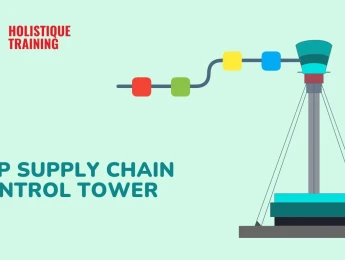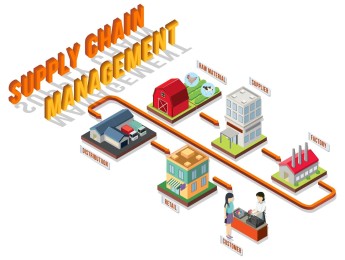Maritime logistics has traditionally been defined as transporting goods and people. However, it also contains a dimension tied to supply chains, encompassing the flow of materials to suppliers, within operational centres, and to consumers.
This course comprehensively examines the basics of maritime shipping, chartering agreements, and the role of port management and operations. You will develop an understanding of supply chain principles related to the shipping industry, examine potential risks and risk management strategies, and cultivate the skills to make informed logistical decisions in the maritime sector.
Upon completion of this course, participants will be able to:
- Develop an understanding of the key facets of maritime shipping management and logistics.
- Describe ship chartering and current issues and trends impacting marine charters.
- Demonstrate comprehensive knowledge of shipping and port operations management.
- Explain supply chain management in the context of maritime shipping.
- Communicate the value of maritime logistics and assess and mitigate possible threats.
This course is intended for:
- Ship owners, Charterers, and Shippers
- Managers of shipping companies
- Operational Managers in navigation companies
- Professionals involved in vessel brokerage, leasing contracts, port operations and storage terminals
- Professionals in oil and gas production and distribution
- Ship Agents and Freight Forwarders
- Commodity Brokers and Suppliers
- Logistics and Management professionals
This course uses a variety of adult learning styles to aid full understanding and comprehension. Participants will review case studies to highlight key areas of importance and possible areas for faults. They will be supplied with the best tools required for learning exercises to improve their skills. Participants will analyse the examples to thoroughly understand how these skills, techniques and methods apply in the workplace.
Day 5 of each course is reserved for a Q&A session, which may occur off-site. For 10-day courses, this also applies to day 10
Section 1: Introduction To Managing Maritime Shipping And Logistics
- Outline the organisational structure of a shipping company.
- Compare shipbroking and ship chartering.
- Describe shipping operations management.
- Examine the consideration factors in transporting cargo.
- Identify the key shipping documents required for cargo transport.
- Discuss the functions of the International Maritime Organization (IMO) and the International Chamber of Shipping (ICS).
Section 2: Overview Of Ship Chartering
- Identify types of ship charters.
- List the 3 main types of charter parties.
- Define the responsibilities of all parties in a charter contract.
- Outline the Incoterms® rules for shipping responsibilities.
- Describe the procedures and processes for ship preparation before handover to a charterer.
- Outline the role of Liquid Natural Gas (LNG) charter rates on LNG prices.
- Discuss recent and current situations affecting marine charters, including:
- The impact and changes from COVID-19 on the shipping sector.
- The significance of the capacity crisis on chartering tankers.
- The struggle to rent gas tankers.
- The impacts of the energy crisis in Europe.
Section 3: Maritime And Port Economics
- Summarise the key components of ship management.
- Identify the stakeholders of maritime shipping.
- Describe the business parameters of marine vessels.
- Outline vessel inspection and certification processes.
- Examine the main features and evolution points in maritime transport.
- Review the principles of port management and operations.
- Outline the areas subject to port authority policies.
- Discuss the evolving structures and future predictions in maritime trade.
Section 4: Overview Of Supply Chain Management
- Outline the basic principles of supply chain management.
- Describe the integration of the supply chain into maritime shipping.
- Identify operational and general supply chain risks.
- List the main roles and responsibilities in risk management.
- Examine the impacts of supply and demand on price elasticity.
- Analyse the types of demand forecasting.
- Characterise the features of a good demand forecast
- Describe the planning and implementation of a resilient supply chain.
- Discuss cost and time efficiencies to integrate into a supply chain process.
Section 5: Managing Maritime Logistics
- Describe the importance and purpose of maritime logistics.
- Identify human element issues and their impact on maritime logistics.
- Describe intermodal freight transportation.
- Outline the logistics of tanker shipping and dry bulk shipping.
- Examine port-centric logistics and operational concepts and practices.
Upon successful completion of this training course, delegates will be awarded a Holistique Training Certificate of Completion. For those who attend and complete the online training course, a Holistique Training e-Certificate will be provided.
Holistique Training Certificates are accredited by the British Assessment Council (BAC) and The CPD Certification Service (CPD), and are certified under ISO 9001, ISO 21001, and ISO 29993 standards.
CPD credits for this course are granted by our Certificates and will be reflected on the Holistique Training Certificate of Completion. In accordance with the standards of The CPD Certification Service, one CPD credit is awarded per hour of course attendance. A maximum of 50 CPD credits can be claimed for any single course we currently offer.
- Course Code PO1-127
- Course Format Classroom, Online,
- Duration 5 days













